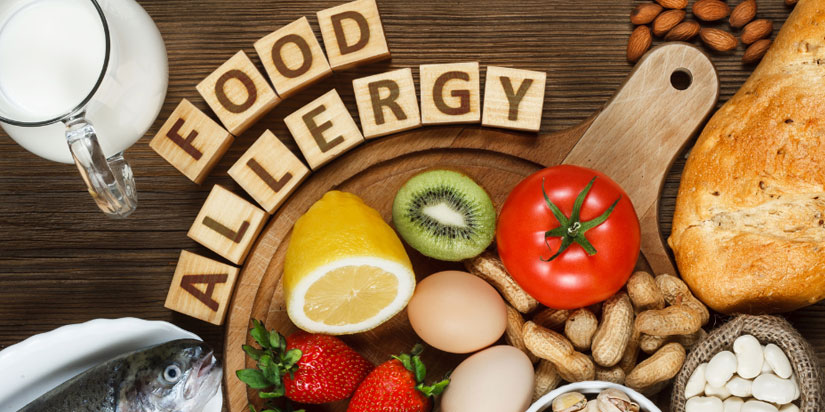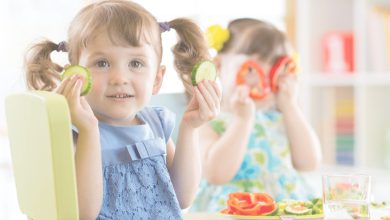Safety at School for Kids with Food Allergies

Safety at School for Kids with Food Allergies
Child food allergies are no joke. And if you thought you noticed an uptick in the number of children dealing with allergies, you’re not wrong. In fact, the rate has increased by 50% since the 1990s. That means there are 50% more parents trying to understand how their child’s allergies will affect their everyday lives. A big part of that is making sure they are safe at school.
Here is some information about common food allergies and how to partner with your child’s teacher and school. There are also resources if you’re a parent whose child has a food allergy.
*This article is not meant to replace a consultation with a doctor. If you think your child has food allergies, contact your pediatrician.
Common Child Food Allergies
People can be allergic to a lot of different foods. However, the US Food & Drug Administration (FDA) says that eight common foods make up 90% of food allergic reactions in the United
States. Those foods are (starting with the most common):
- Milk.
- Eggs.
- Fish.
- Shellfish (such as crab, lobster, and shrimp).
- Tree nuts (such as almonds, walnuts, and pecans).
- Peanuts.
- Wheat.
- Soybeans.
Symptoms can be very different for each kind of allergy. If you think your child may be having an allergic reaction to a certain food, be on the lookout for:
- Hives or a rash.
- Coughing, wheezing, or difficulty breathing.
- Dizziness/lightheadedness.
- Tingling or itchy sensation in the mouth.
- Swelling of the throat, face, tongue, lips, or vocal cords.
- Vomiting and/or diarrhea.
- Stomach/abdominal cramps.
- Loss of consciousness.
If you’ve done much research on food allergies, you probably have run across the term “food intolerances.” What’s the difference? The simplified explanation is that intolerances don’t trigger the immune system and allergies do. The symptoms related to food intolerances are usually less severe, too. That doesn’t mean your child’s quality of life won’t suffer because of a food intolerance. It just means their life won’t be threatened by it, where an allergy can trigger a “go to the hospital now” episode of anaphylaxis.
Partner With Your Teacher & School
For parents whose children have food allergies, life is already stressful. The constant monitoring is a full-time job. So it’s understandable if the thought of handing that responsibility over to a teacher or daycare worker is overwhelming.
As difficult as it will feel, it’s vital to trust the other adults in your quest to keep food allergens away from your child. You’ll need the extra help, especially when your child is little.
- Before your child ever sets foot in the door, contact their school, preschool, or daycare. Schedule a meeting months (seriously, months) before kids go back to school. Communicate with the teacher, but ask to talk with the school’s nurse, too. Share your home emergency plan with them. They will help you fill out all the necessary paperwork to create a school health care plan.
- Don’t worry about schools brushing your concerns to the side. According to the Americans with Disabilities Act (ADA), public or private schools that get funds from the federal government have to provide accommodations for kids with food allergies.
- Make a food allergy card for your child. Teachers and school staff can use it as a reference. Your child can also hand it to whomever they need to instead of having to memorize all the details of their allergy.
- Let the teacher know they can call whenever they have questions about your child’s health.
Resources
Especially when your child is little, managing food allergies can be a daunting task. Here are a few resources that could help you navigate the topic of food allergies a little easier.
- Common Allergens 101 – If you’re new to the world of food allergies, this is a great place to learn the basics.
- Food Allergy Emergency Checklist – This is a good action plan if your child should ever eat something they are allergic to. (Consult with your pediatrician to make sure there aren’t any missing steps you should take for your child’s unique situation.)
- “Stop. Look. Ask. Go.” Training for Kids – This simple training helps you teach your preschooler the importance of their food allergies and what to do before they eat food that isn’t prepared by you.
- “Managing Food Allergies at School” Resource Page – This site gets you started on all the forms and questions you should have before and after talking with your child’s school, preschool, or daycare.
Like any lifelong health issue, food allergies can feel like an overwhelming amount of work. Thankfully, there are resources that can help parents as they do their best to take care of their child’s health concerns. There is a community to support you that includes your child’s teacher and school. Lean into the additional help offered to you, and know you’re not in this alone.





